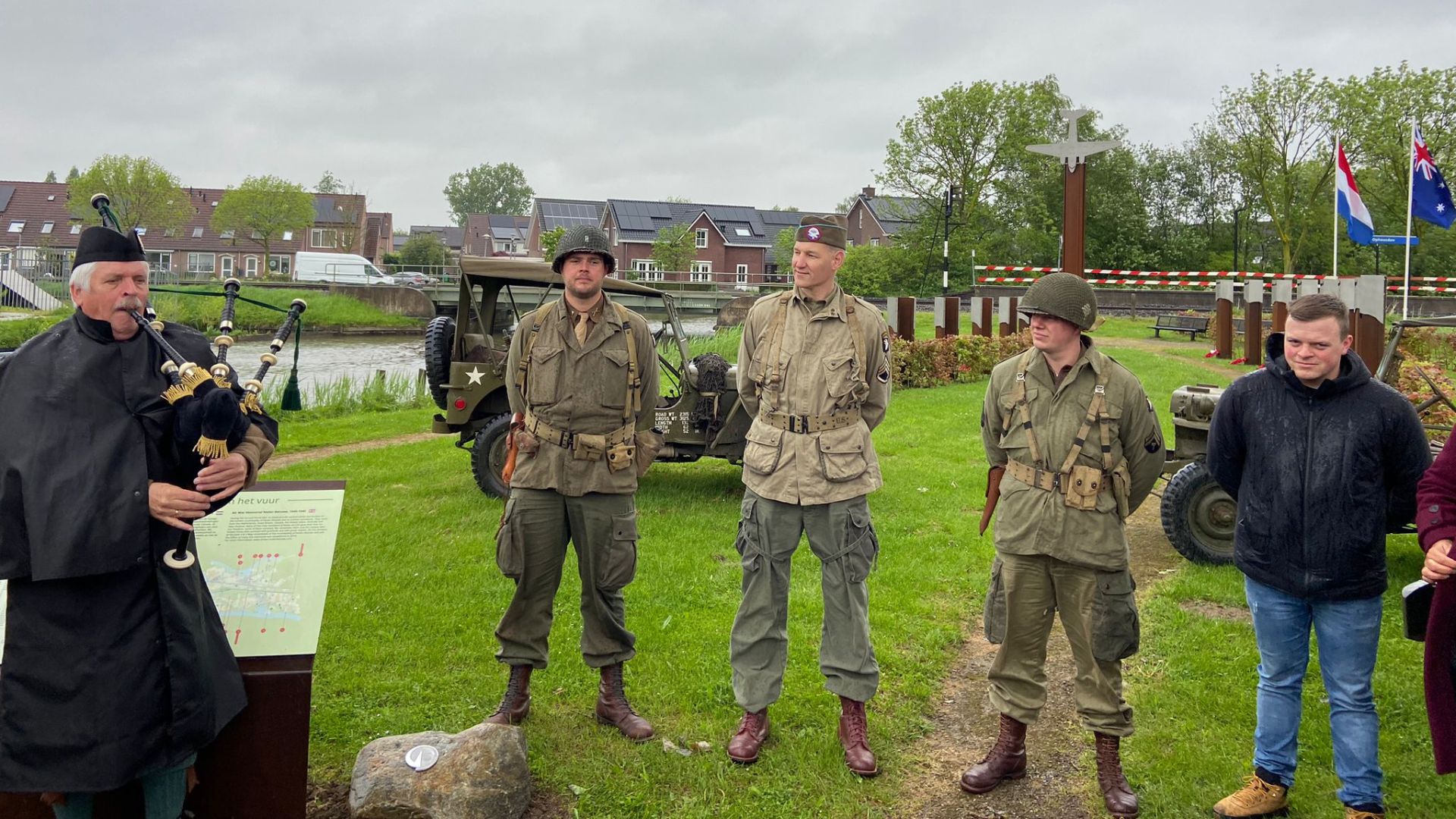Today, May 3rd, the LRE Foundation, together with four municipalities in the Rivierenland and the province of Gelderland, launches four new hiking and cycling trails in the Rivierenland in the Netherlands. This project shed light on the lesser-known history of the western Gelderland River area, that was among one of the hardest-hit regions in the Netherlands during World War II.
The project aims to create a network of trails that informs the public about local history and create a better connection between different parts of the region. This collaborative effort involves the municipalities of West-Betuwe, Neder-Betuwe, Tiel and Buren, along with the Regionaal Archief Rivierenland, represented by Sil van Doornmalen, and the Flipje en Streekmuseum/ WO2 Informatiecentrum Rivierengebied. Local historians have also contributed to highlighting important POIs and stories about the wartime period in the Rivierenland.
Today, May 3, marks the official launch of the five Liberation Route Europe trails: a themed hiking route in Tiel, three cycling routes spanning West-Betuwe, Neder-Betuwe, and Buren, and a comprehensive regional route for both hiking and cycling, covering over 230 kilometres and linking all aforementioned municipalities.
The day’s agenda includes ceremonies across each municipality. Attendees will include local and national journalists, reenactors, Scottish pipe drum players, and representatives from the LRE Foundation, notably Honorary Chairman Jurriaan de Mol and LREF Project Officer Wout van Aalst.
The ceremonies will feature the unveiling of a Vector of Memory, sharing historical anecdotes, commemorations, and most importantly, underlining the significance of the new Liberation Route Europe trails in the Rivierenland area. The day’s events will culminate in Tiel at the WO2 Informatiecentrum Rivierengebied.
“The impressive content and stories that have been collected, represent the impact the Second World War had on the people living in the Rivierenland.” says Wout van Aalst, project officer at the LRE Foundation. “Different perspectives and stories came to light: fighting in the resistance, the mobilization of the Dutch army, collaboration with German troops and the total destruction of certain areas, only to name a few. Collecting these stories together with the different partners and people involved, made working in the Rivierenland a real pleasure.”
